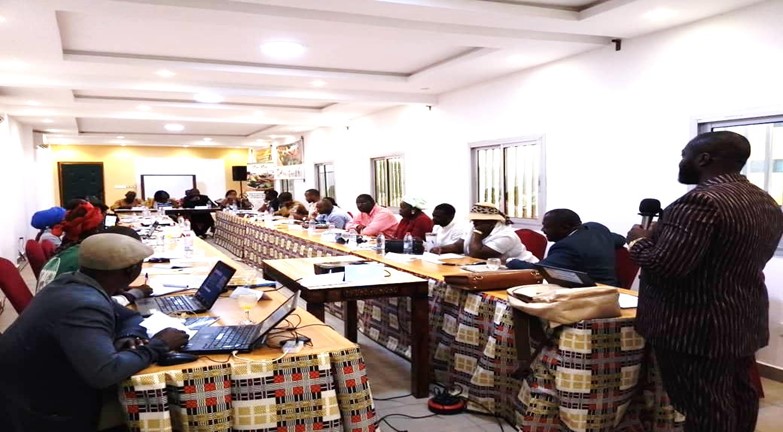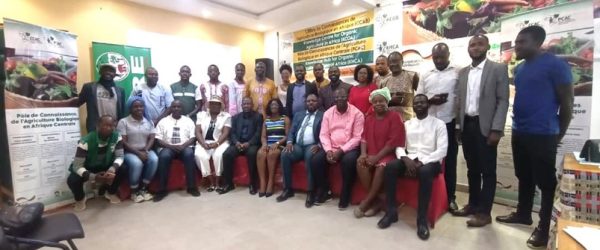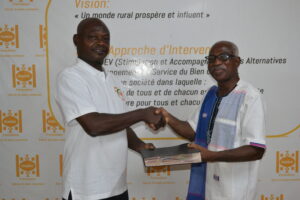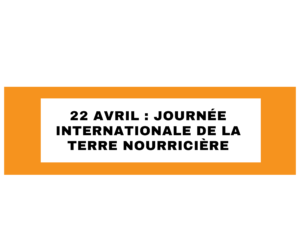L’atelier de restitution de l’étude du cadre juridique de l’agriculture biologique au Cameroun a réuni le 26 septembre 2023, plus d’une vingtaine de participants dont les représentants des services techniques des sectorielles compétentes, à savoir : MINEPDED, MINSANTE, MINCOMMERCE, MINADER, les organisations non gouvernementales et plusieurs acteurs de la chaîne de valeur de l’Agriculture Biologique et de l’Agroécologie. Cet atelier qui s’est déroulé au Yaahot Hôtel à Yaoundé, a permis de présenter un état des lieux critique du cadre réglementaire de l’Agriculture Biologique au Cameroun, afin de susciter un engagement des acteurs institutionnels clés, en faveur de la promotion de l’agriculture biologique dans les politiques publiques.
Au-delà de contribuer au plaidoyer pour le renforcement du cadre juridique de l’agriculture biologique au Cameroun, l’étude menée avait pour but d’identifier les textes de loi du Cameroun, en relation avec l’agriculture biologique, de réaliser une analyse critique et prospective des dispositions, d’identifier et d’analyser les instruments nationaux.
En effet l’avant-projet de loi sur l’agriculture biologique, en gestation depuis 2006, repris avec l’appui de la coopération allemande à travers la GIZ dans le cadre du programme PROCISA en 2020, avait fait l’objet d’un examen et d’une relecture au cours d’un atelier interministériel tenu à Kribi les 25 et 26 février 2020. En 2023, ce projet n’est toujours pas intégré dans les politiques publiques. D’après M. Stanislas BILA, sous-directeur de la Réglementation, des Semences et de la Quarantaine Végétale (RSQV) au Minader, c’est la primature qui devrait conduire ce processus vers son aboutissement. Pour le représentant du Ministère de la Santé publique, il est important d’accroître la sensibilisation auprès des populations. Pour ce faire, les Organisations de la Société Civile (OSC) doivent se rapprocher de la direction de la santé pour l’organisation de vastes campagnes de sensibilisation.
En ce qui concerne le statut de l’agriculture biologique, il s’agit d’un système de production agricole visant la protection de la santé de l’homme, des animaux et de l’environnement. Il est également question de conquérir de nouveaux débouchés, en raison de la demande de plus en plus croissante sur le continent.
Selon les experts présents aux travaux de l’atelier, en Afrique, l’agriculture biologique est peu recensée dans les statistiques officielles, alors qu’elle est de plus en plus présente sur les marchés locaux et d’exportation. La demande des consommateurs africains s’accélère, offrant un débouché économique dynamique, soutient le représentant du Centre de Coopération Internationale de la Recherche Agronomique pour le Développement (CIRAD) dans son article intitulé « l’Agriculture biologique en Afrique : un levier d’innovations pour le développement agricole ».
Le professeur KAMGANG Théophile, coordonnateur du CRESA FORET-BOIS estime qu’il est important qu’une enquête soit menée auprès des étudiants de la FASA (Faculté d’Agronomie et des Sciences Agricoles) afin de savoir quels sont ceux qui sont intéressés par les produits biologiques, bref faire un sondage pour avoir les statistiques.

L’agriculture biologique présente l’avantage de diminuer « les impacts négatifs de l’agriculture conventionnelle sur l’environnement et sur la santé, notamment parce qu’elle n’utilise pas d’intrants chimiques de synthèse. Elle améliore la résilience des systèmes agricoles. Ses techniques spécifiques peuvent, dans certaines conditions, accroître la productivité agricole, même si les rendements sont en moyenne inférieurs à ceux de l’agriculture conventionnelle ». Cependant, malgré l’existence de la demande qui croît au fil des ans, ce type d’agriculture est encore très peu vulgarisée sur le continent africain. En effet, en Afrique, l’agriculture biologique certifiée couvre 1,8 million d’hectares, soit seulement 0,2 % des terres cultivées du continent, d’après les statistiques de l’IFOAM (Fédération Internationale des Mouvements de l’Agriculture Biologique) et du FIBL (Institut de Recherche de l’Agriculture Biologique).
Parmi les recommandations formulées par les experts à l’issue de cet atelier, il est ressorti les principaux points suivants :
- La création des points focaux CCAB dans tous les ministères concernés par la promotion de l’agriculture biologique ;
- La nécessité de ressortir les actions spécifiques qui peuvent être menées par les ministères concernés au profit de la promotion de l’agriculture biologique et qui seront suivies par les points focaux ;
- Le CCAB doit veiller à l’harmonisation des actions des différents ministères impliqués dans la promotion de l’Agriculture biologique ;
- Le PCAC doit se rapprocher du ministère de la santé pour l’organisation des sensibilisations auprès des populations sur la promotion et la consommation des produits biologiques.
Toutes ces recommandations formulées au niveau national par les sectorielles seront envoyées au Ministère de l’Agriculture et du Développement Rural, au Ministère de l’Elevage, des Pêches et des Industries Animales et au Ministère de l’Environnement de la Protection de la Nature et du Développement Durable, après validation par le comité de validation mis sur pied.
Notons que cet atelier de restitution de l’étude sur le cadre réglementaire de l’agriculture biologique au Cameroun a connu la participation de plusieurs départements ministériels concernés ainsi que celle des organisations partenaires.
Marguerite MOMHA, Communication Inades-Formation Cameroun










